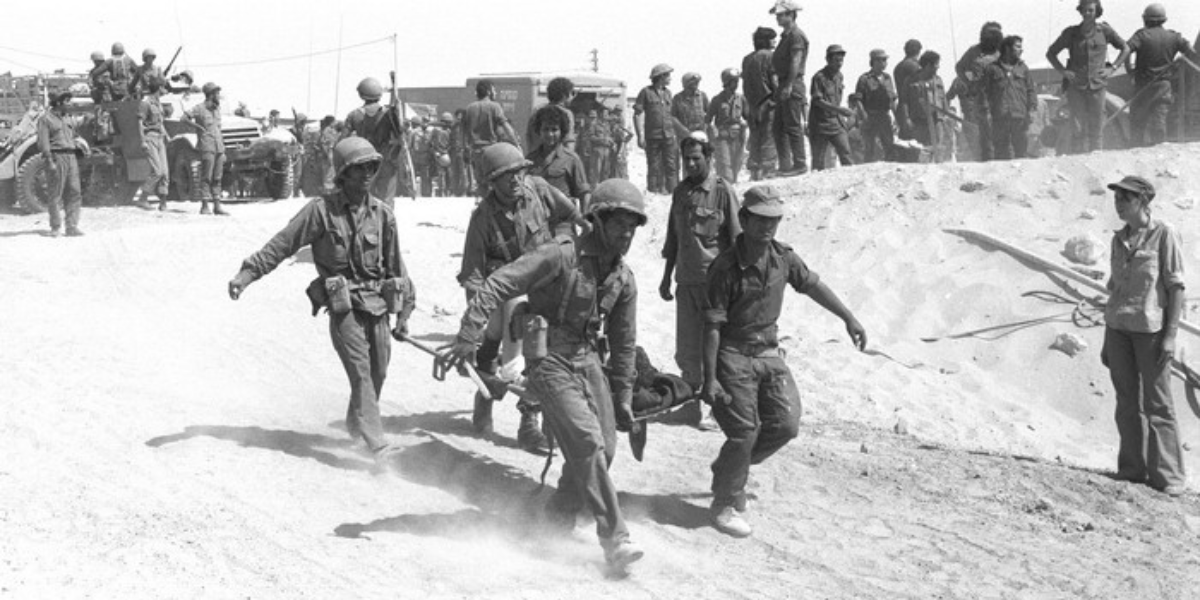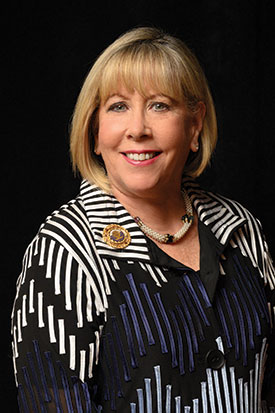Hadassah
President's Column
Hadassah’s Key Role in the Yom Kippur War

It’s been 50 years since Egyptian forces, on one of the holiest days on the Jewish calendar, crossed the Suez Canal and overwhelmed the thinly spread Israeli forces on the other side. On that same day, the Syrian forces breached the cease-fire lines in the Golan Heights. The Yom Kippur War had begun. All Israelis and many Jews around the world alive at the time remember where they were and what they were doing when they first heard the news of the attack. It was the greatest existential threat Israel ever faced, until then and until now.
If history is a road map showing us how we got to where we are today, the Yom Kippur War remains one of the most prominent junctions on the timeline of Israeli-Arab relations.
Six years earlier, during the Six-Day War, Israel had wrested the Sinai Peninsula from Egypt along with the West Bank from Jordan and the Golan Heights from Syria. Conventional wisdom among Israeli leaders in 1973 was that Egypt—lacking air superiority—would not try to cross the canal and retake its lost territories. Hence the sparse Israeli presence on that front line.
But Egyptian President Anwar Sadat believed he didn’t need to win a war; he only needed to win one battle to boost Arab morale and shake up the status quo.

The war did indeed alter the status quo, eventually leading to a formal Israeli-Egyptian peace treaty—signed in 1979 by President Sadat, Israeli Prime Minister Menachem Begin and President Jimmy Carter—and the return of Sinai to Egypt. In 1981, a year before the Sinai return, Sadat was assassinated for having made peace with the Jewish state, but the treaty has held for more than 40 years. Israel has since established diplomatic relations with five additional Arab nations.
Hadassah played a key role in the Yom Kippur War. Eighty percent of the doctors in Israel’s military field hospitals were graduates of the Hebrew University-Hadassah School of Medicine. Within hours of the war’s outbreak, 95 of our hospital’s 250 staff physicians joined their army reserve units. During the war and its aftermath, 527 critically wounded soldiers were treated by the Hadassah Medical Organization; all but eight of them survived.
Peace with Egypt, Israel’s largest neighbor, played a crucial role in Israel’s subsequent economic development. But despite several attempts at negotiation, there has been no similar resolution of the Israeli-Palestinian impasse. Nonetheless, as we remain hopeful, Hadassah models coexistence. As is well-known, our medical center is an oasis of peace, with Jewish and Arab staff, patients and families mixing together daily in an atmosphere of respect and shared values.
In recent years, our ethic of respect has been spreading throughout Israeli society, where Jewish, Muslim, Druze and Christian citizens interact with increasing regularity. In addition, HMO runs a program, now in its third year, for Israeli Arabs who want to take part in voluntary national service, Sherut Leumi. Many of those who participate have indicated that they want to pursue careers in health care, including nursing, among other fields, after their service ends.
Our history brought us to where we are. It is our obligation to learn from it and to honor those who gave their lives so that Israel and the Jewish people could survive and thrive. But let us also remember that we make history every day, history that our heirs will study. May our hope and our reality merge, and may 5784 become not only a year, but the year of peace.
A happy New Year to us all.









 Facebook
Facebook Instagram
Instagram Twitter
Twitter
Leave a Reply